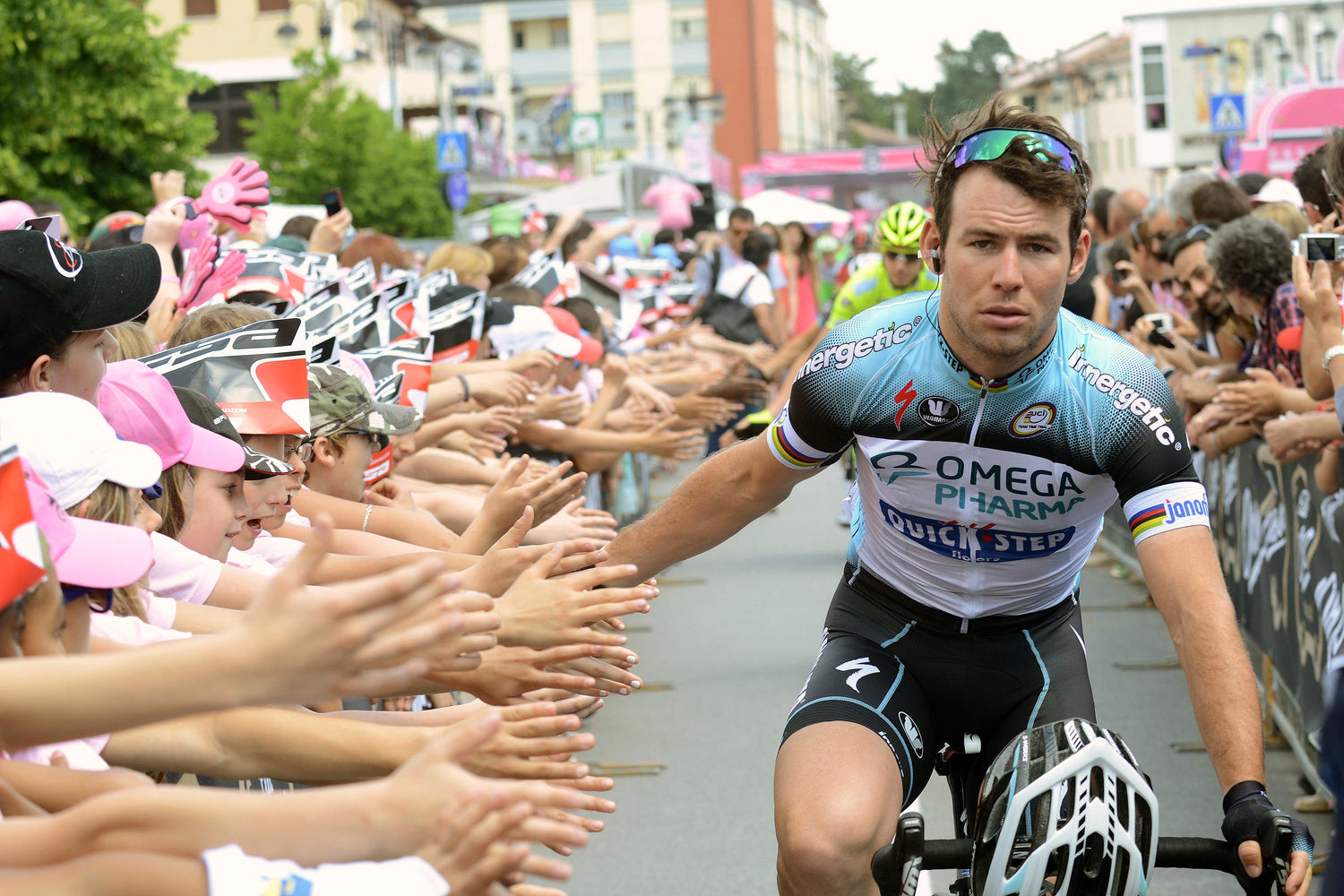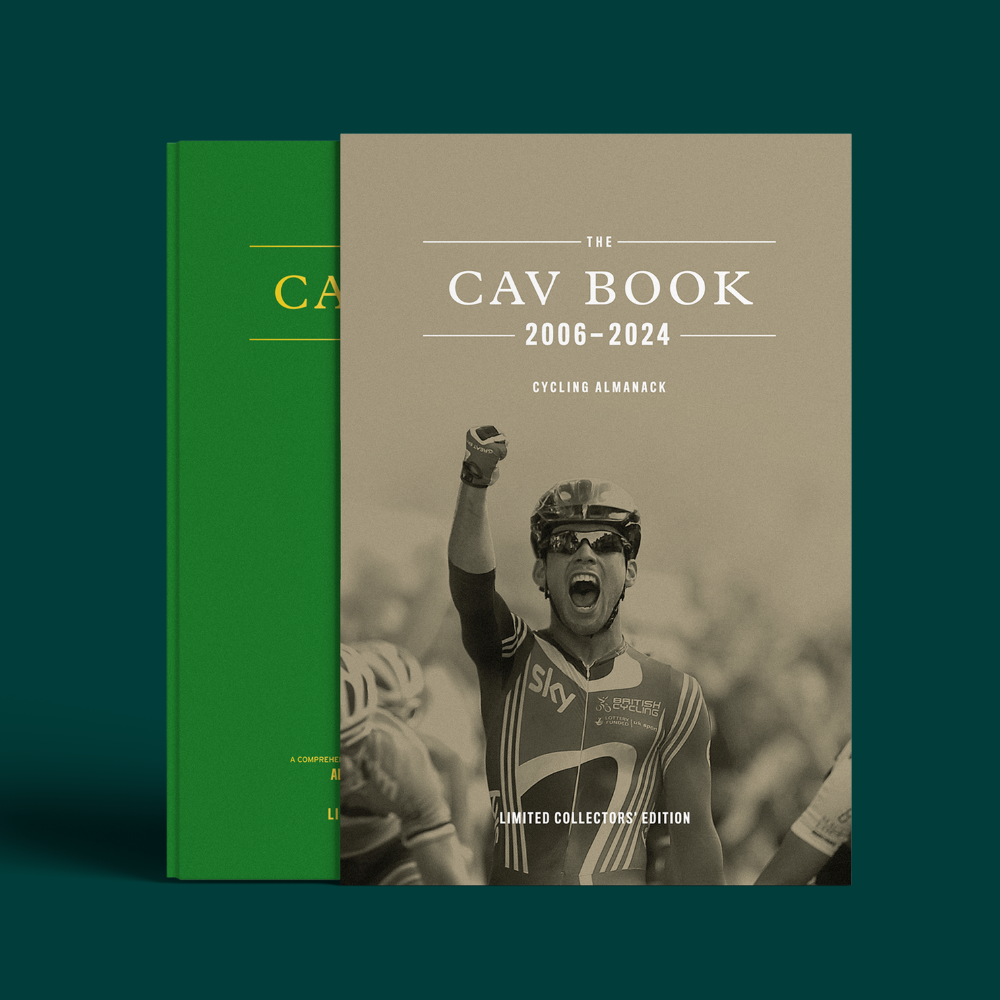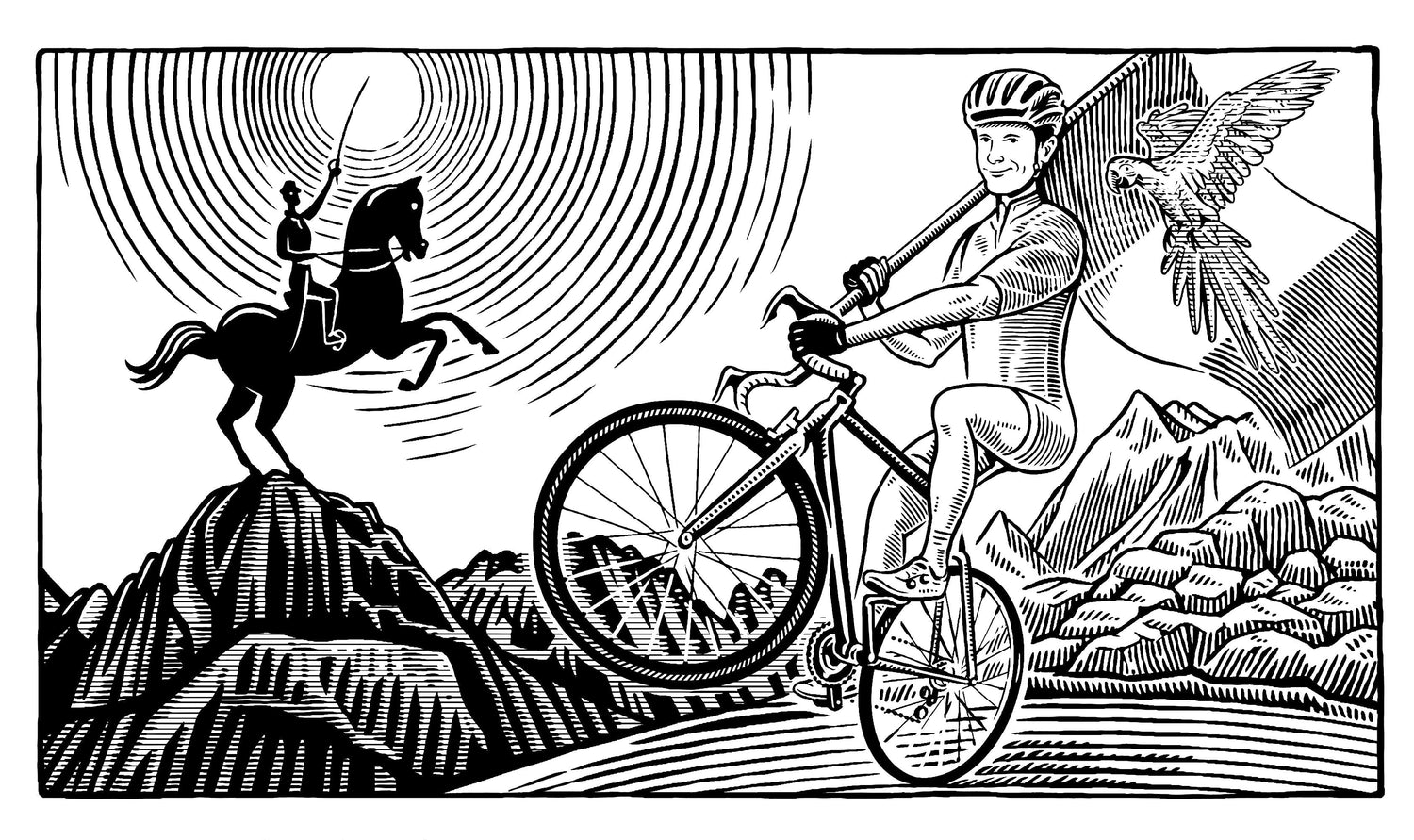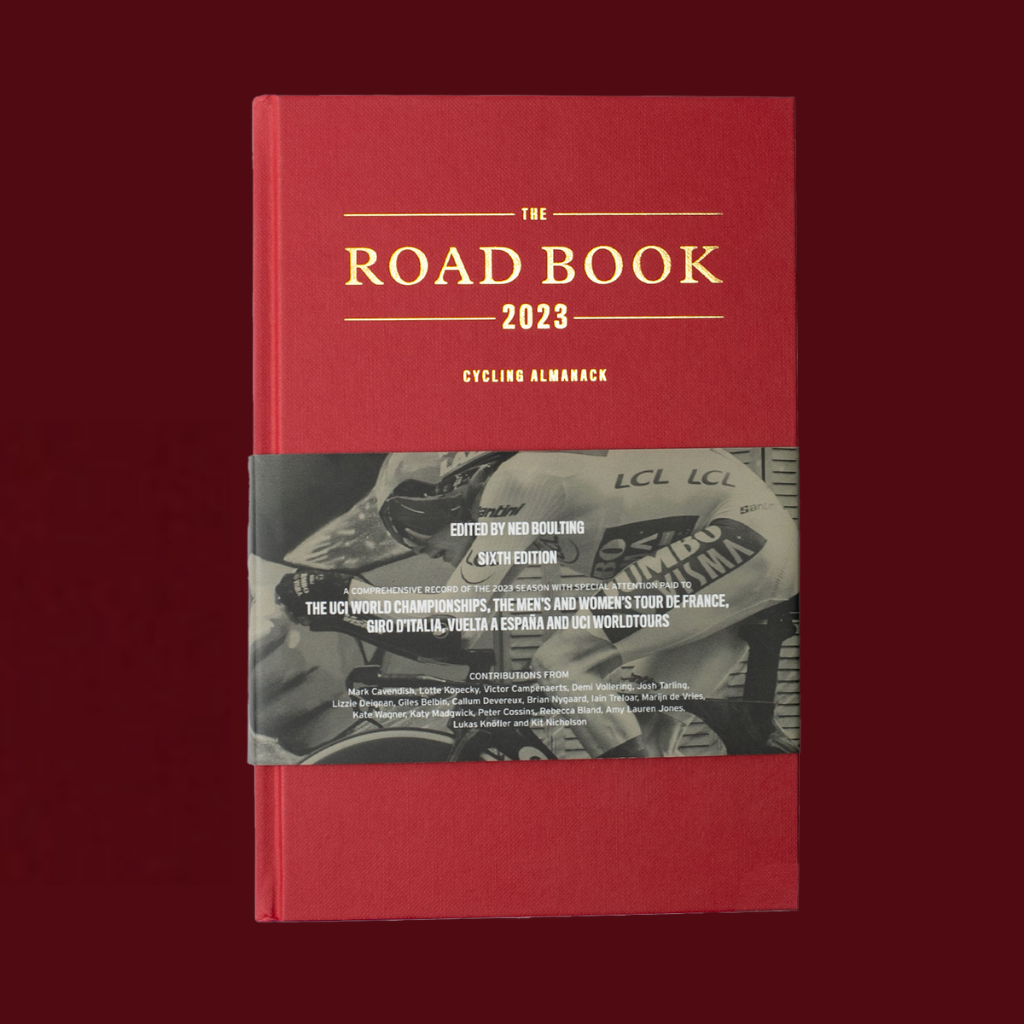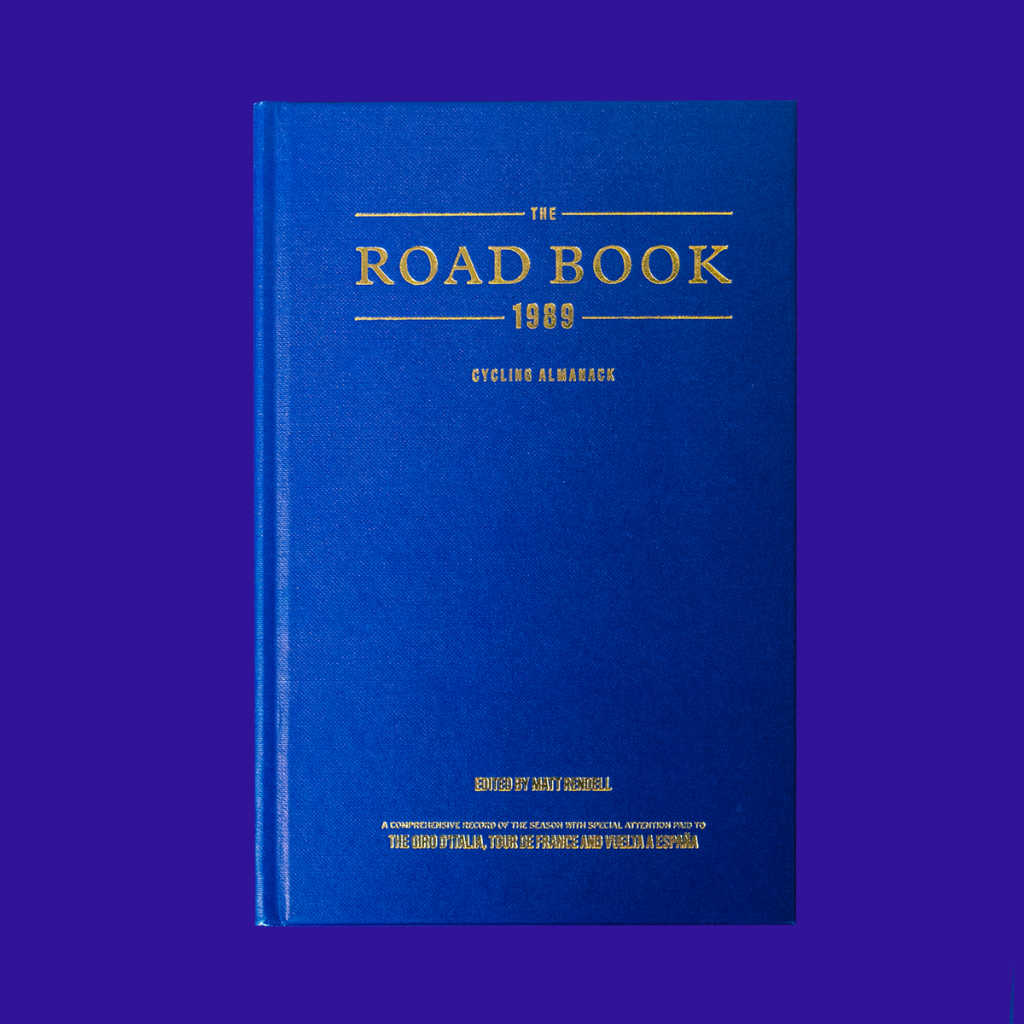This Sunday, the 31st of March, is the 108th edition of the Tour of Flanders, or the Ronde van Vlaanderen. One of, if not the biggest one-day race of the year, characterised by the punchy cobbled climbs of the Flemish Ardennes, a route and race which attracts the best riders from both the Women’s and Men’s pelotons and which encourages aggressive, exciting racing; highly anticipated by cycling fans the world over. The Tour of Flanders is deeply intertwined in Flemish culture with Thomas van den Spiegel (CEO of Flanders Classics) writing for The Road Book in 2021 that ‘when you touch the race, you are actually touching the identity of the Flemish people… it belongs to everyone, and everyone is proud to be a small cog in this great machine’ and that is evident in the flood of frankly fanatical Flemish fans which line the roadside from the first metre to the last. It is, in part, this localised passion which makes it a race to mark with a big red X on the calendar for so many.

We here at The Road Book have covered the race in depth with essays from winners, journalists and even race directors published in our pages over the years. For 2024, our esteemed editor Ned Boulting and friend of The Road Book and former professional David Millar (who thrice rode the course during his 14-year career) will be watching on the sidelines. You can join them to breakdown the race in an informal discussion with Sports Tours International here:
https://sportstoursinternational.co.uk/event/tour-of-flanders-2/

The second Monument of the season has a long and storied history, first introduced for the men’s peloton in 1913 as a celebration of the Flemish speaking region of Belgium. The race has gone from strength to strength since Paul Deman won its first edition after a gruelling 12 hours of racing. We don’t think it will take that long this time around, given the pace of racing this season, but we suppose you never know!
The absence of Tadej Pogačar (UAE Team Emirates) on the starting line to defend his title means that Eddy Merckx’s record time gap of 5 minutes and 36 seconds to second place, seems secure. Though having said that, Mathieu van der Poel (Alpecin-Deceuninck) is in such fine form that a similar display is not beyond the realms of possibility. Cobbled climbs, punchy terrain, the potential of vicious winds and horrendous spring weather all contribute to the gruelling nature of the Ronde, the 1985 edition being particularly appalling with only 24 of the 174 riders finishing the race. Though, we hope they won’t have to endure such horrific conditions this season. Such a challenging course means that entertaining riding is almost guaranteed, and with a wealth of talent on display and both races televised without overlap, it will be a gripping day – here’s our breakdown of what to expect from the Ronde von Vlaanderen 2024!

The Course
The Tour of Flanders provides a punchy parcours, and often encourages a solo rider or a small, elite group, to breakaway on the final, classic double-punch of the Oude Kwaremont and Patenberg before a short flat stretch to the finish.
Last year, Pogačar attacked on the penultimate climb of Oude Kwaremont with 55km to go. He was quickly chased down, but on the Koppenberg the intrepid Slovenian again launched forwards, shredding the peloton until only he, Mathieu van der Poel and Wout van Aert (Jumbo-Visma) remained in an elite trio on the front. It was the final climb of Kwaremont which proved decisive as the Cyclo-cross kings couldn’t match the Slovenian Super-Man as he became only the second man in history (after Eddy Merckx) to win both the Paris-Nice overall and Tour of Flanders in the same season. With Wout van Aert sadly dropping out of the 2024 edition due to injury (we wish him, and the other riders injured at Dwars door Vlanderen all the best with their recovery) Matteo Jorgenson (Team Visma Lease-a-bike) will now take on the mantle of leading the Dutch team and has a good chance of becoming the third man to complete this elusive double.
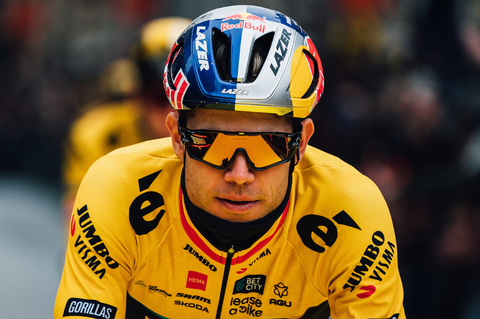
The pattern of the race has not been dissimilar in recent years, with van der Poel winning from an elite sprint of half-a-dozen riders (including Pogačar) in 2022, and Kasper Asgreen beating out the Dutchman in a sprint-a-deux to take victory in 2021. The race rewards aggressive riding in it’s latter half, and given the speed with which the peloton has taken on each race this season, we wouldn’t be surprised to see the bunch thinned out to an elite group, with classics specialists and puncheurs featuring heavily as they attempt to burn off the sprinters in the day’s early double-digit gradients, before the final big attack is launched in the last 16 kilometres.
The women’s event followed a similar format last year, as Kopecky used SD-Worx’s dominance and her own punchy style to great effect on the final ride up the Oude Kwaremont, allowing her to get away from the chasing pack and become the first woman since Mirjam Melchers in 2006 to win back-to-back editions of the race. The day’s early breakaway had slowed to a crawl up the Koppenberg, which had in turn allowed Kopecky and Lorena Wiebes (both SD-Worx) to catch them, joining with teammate Marlen Reusser to put them to the sword. Demi Vollering managed to complete an SD-Worx 1-2 on the podium by outsprinting the chasing bunch.

With its finale focused on the town of Oudenaarde, and the men’s race alternating it’s starting line between Antwerp and Bruges, it encompasses much of Southern Flanders. Over the lengthy 270.8km of the course, slightly altered in order to use wider approach roads and increase the riders’ safety, all the features of Flemish racing are set to be on display. The Ronde van Vlaanderen has a parcours to match the waveform of a particularly aggressive punk song, and it is certainly a gruelling race with 17 cobbled ‘hellingen’ to be tackled by the men (including 8 in just the final 55km), whilst the women are faced with 12 including such famous names as the Wolvenberg, Taaienberg and the Valkenberg – all of which tend to string out the peloton, and leave it vulnerable to the merciless riding of the race’s favourites.
The three distinctive climbs, ridden by both the men and women several times throughout the day are the Koppenberg, the Oude Kwaremount and the Paterberg. The first of these major features is the Koppenberg, it comes 226km in for the men’s peloton, and its narrow cobbles, with an average gradient of 11% rising to 22% mark it as a brutal climb, and if the riders don’t get their approach right, they could be forced to dismount – a deathblow to any hopes of victory. It was on these slopes that SD-Worx managed to turn the floundering peloton to their advantage at last year’s event, and with 44.6km left to go, an extremely long-ranged attack is not entirely inconceivable. Any team with riders left to spare, may try and shred the rest, getting their leader in an advantageous break with several teammates around them.
The distinctive and decisive double-punch of the Oude Kwaremount and Paterberg feature several times across the day. The Oude Kwaremount appears for the first time after 136km of racing, and as the longest climb in Flanders at 2.2km (though not the steepest – 4% average gradient, rising to 11.6%) it is a tricky one to master. Last year Pogačar began to thin the peloton on his second time up it, though it’s final appearance with 16km to go functions similarly to the Cipressa at Milan-Sanremo: you probably won’t see the decisive attack on it’s slopes, but it will be prepared there. By contrast, the Paterberg which follows (both at around 50km to go and at just 13km left) is short, steep and anything but sweet. In fact, savage is probably the best way to describe its 13% average gradient, reaching a maximum of 20% over just 360m. It is a cruel cobbled ride after over 200km of racing, and if a strong rider finds they have good legs, or a strong punch left in them, they will be able to use its gradients to their advantage. It is the kind of terrain which suits Mathieu van der Poel to a tee, so if he can reign in his wilder tendencies till late in the game, an attack here could get him clear for the remaining few kilometres. However, the last 12km or so are relatively flat, so an attack would need to be brutal in the extreme to allow a puncheur to shatter the sprinters and get a clean ride. It is more likely that we will see a small group, with the likes of Philipsen or Mads Pedersen (if he starts) desperately fighting to stay with the classics specialists and keep enough reserves of energy to win on the final straight.
Men’s Riders to Watch
In the final stages of the Dwars door Vlaanderen, a brutal crash brought down a staggering proportion of the favourites for the Tour of Flanders including: Jasper Stuyven (Lidl-Trek) and Wout van Aert (Team Visma-Lease a bike), both of whom suffered broken collarbones. It is a shame for both riders to have done so much preparation, focusing the early part of their season on this race only to see it come crashing down in front of their eyes. It has also dampened some of the excitement bubbling away amongst fans, as we were hoping for another fierce battle between Wout van Aert and World Champion van der Poel. With Lidl-Trek’s Mads Pedersen and Intermarché-Wanty’s Biniam Girmay also going down hard, which may well affect their form, competition for the Dutchman is a little thin on the ground. Pedersen out-sprinted van der Poel to win Gent-Wevelgem only last week, and Girmay is another quick man who would have been a favourite to challenge the Dutchman, but it will depend on how any injuries they’ve sustained have healed over the week.
Team Visma-Lease a bike have gone from having the strongest team, to running on empty. Not only is Wout van Aert absent, but other key figures such as Christophe Laporte, Dylan van Baarle and Jan Tratnik (all of whom have put in strong performances already this year) have all been forced to abandon races in the last few weeks due to illness or injury. It seems likely that only van Baarle will be fit to start, alongside the van Dijke brothers and Tiesj Benoot in support of new team leader Matteo Jorgenson. Whilst losing their captain is a devastating blow, it is by no measure terminal, and Jorgenson and Benoot used it to spur them on to an impressive victory at Dwars door Vlaanderen, with Jorgensen making a 7km solo run to the finish whilst Benoot stifled any attempts to chase him down. Whether the Dutch super-team will be driven to further acts of heroism and to demonstrate their strength in depth by the loss of their leader, or crumble under the pressure of a wholly undamaged Alpecin-Deceuninck, who have seen both their rival teams decimated – we will have to wait and see. It is interesting however, that after bemoaning the ennui caused by Visma-Lease a bike and UAE’s strength over the last couple of seasons, cycling’s little corner of the internet has been awash with memes and posts wishing that the likes of Jonas Vingegaard and Tadej Pogačar make a surprise appearance at the Tour of Flanders, just to prevent van der Poel walking to victory.

Alpecin-Deceuninck with both Jasper Philipsen and Mathieu van der Poel will now undoubtedly be out and out favourites, if they weren’t so already. They have started the classics in dominant style, with van der Poel winning the E3-Saxo classic, coming a very close second at Gent-Wevelgem and marking the rest of the peloton doggedly at Milan-Sanremo to allow Philipsen to take the first monument of the year in a sprint finish. With the combination of van der Poel’s punchy, cyclo-cross influenced style and Philipsen’s sheer speed, the Belgian team look to be the best placed to have all the bases covered with either of their riders capable of taking victory if the conditions favour them.
Soudal Quick-Step are another team with experts in every field present. The likes of Yves Lampaert, Kasper Asgreen (a former winner), Julian Alaphilippe and Casper Pedersen will fancy their chances of mixing it up, though they may be forced to exploit mistakes from the favourites, despite the indisputable quality of their roster, and it will take a phenomenal team performance for them to unseat Alpecin-Deceuninck. Danny van Poppel’s leadout skills could be vital for Bora-Hansgrohe who haven’t managed to replicate their dominance of the Tour Down Under from the season’s opening salvo, but with Jordi Meeus also starting, they could throw a German cat amongst the Flemish pigeons. Matej Mohorič (Bahrain Victorious) is a vicious descender and should never be written off, but his team maybe just lack the strength in depth of the big classics teams, so unless they can isolate one of the favourites, it will be a tough day.
Lidl-Trek seem to be growing in confidence with each passing classic, and if Mads Pedersen’s victory at Gent Wevelgem, forcing van der Poel to concede the sprint in the final moments, is anything to go by, they will hope to isolate rivals amongst their strong team and grind them into submission. Tim Declercq, Jonathan Milan (who had an excellent Gent Wevelgem) and Tom Skujins are not to be trifled with. That’s before the lighting pace of Mads Pedersen is discussed. He might not be faster than Philipsen, but on his day the Dane has demonstrated that once he gets through the hills, there are few others who can match him. With their team hit hard by injuries, the American squad have perhaps slipped from favourites to underdogs, but only a fool would write them off completely.
Women’s Riders to Watch
The Women’s edition begins later in the day, but with a prime Easter Sunday afternoon viewing slot this is a massive positive for the race. Its 163km in duration, and so shorter than the men’s, starting and finishing in Oudenaarde, but the final 46km follow the same course as the men’s and a similar pattern of attacks can be expected. The 2024 edition marks 20 years since the first Tour of Flanders for the women in 2004, and as always with this race the very best will be on the startline. A list of previous winners reads like a who’s-who of the women’s peloton including: Annemiek van Vleuten, Chantel van den Broak-Blaak, Marta Bastianelli, Anna van der Breggen, Lizzie Deignan, Elisa Longo Borghini and Marianne Vos – many of whom return this season.
Lotte Kopecky has won the last two editions, and will, despite some internal strife, still be favourite to become the first rider to make it three in a row. The World Champion is well supported, as you would expect from a team which has been as dominant as SD-Worx Protime have been in the last few seasons. With Demi Vollering, Lorena Wiebes (who performed admirably on the Kemmelberg at Gent-Wevelgem) and Marlen Reusser lining up as a supporting cast, any one of whom could step into the spotlight and take victory themselves. If SD-Worx can get it right, no-one will be capable of matching them, but at Dwars door Vlanderen the Dutch team were uncharacteristically shaky, finishing without a single rider on the podium. Mix this with the unpleasant public airing of Vollering’s contract disputes on X (formerly Twitter) and its seems that discontent within the camp is negatively effecting their performance. Finally, the strain of having the world’s two biggest stars on the same team seems to have widened any cracks into gapping fissures. Although, this can only be more entertaining for a neutral spectator, as perhaps we could see this friction manifest itself on the course with Vollering launching an early solo attack rather than riding defensively in favour of Kopecky.
In any case, the likes of Katarzyna Niewiadoma and Zoe Backstedt riding for CANYON//SRAM will be hoping to exploit any weakness in the super-team. The Polish superstar has been training at altitude in preparation for this Monument, which will serve to benefit her fitness, allowing her to punch better than others on the broadly short but very aggressive cobbled climbs. Though she has never made the podium at this legendary race! Lidl-Trek’s women’s team look as strong as the men’s and a Visma Lease-a-bike style double-dominance would be a massive day for the organisation. With Elisa Longo Borghini, Elisa Balsamo and the incredible Lizzie Deignan on the startlist, there is a good chance that SD-Worx’s disorganisation will play directly into their hands and we could see a monumental shift in the balance of power play out over the Flemish cobbles.
Puck Pieterse will turn out for Fenix-Deceuninck in what might be her last road race before the Olympics. Always aggressive and always entertaining, the young Dutchwoman has had a few top-10 finishes this season and although unlikely to win, her attacks will make for interesting watching. Team Visma-Lease a bike’s Marianne Vos needs no introduction and any explanation of her skill would inadequately outline her ability. The greatest rider ever took her 250th career win at Dwars door Vlaanderen – and looks to be flourishing, rather than winding down despite her 36 years. She also won Omloop Het Nieuwsblad for the first time, at the first time of asking, in a classics season which is looking to potentially be her best – especially if she can cap it off with a win at the Tour of Flanders. With SD-Worx floundering, we think Vos will, once again, roar back to the top.
For The Road Book 2022, Rouleur Editor Edward Pickering contributed a piece called ‘Paradigm Shift: What the 2022 Tour of Flanders Tells Us About Cycling’. It is an excellent article which covers both cycling and philosophy (two of our favourite things) and posits that 2022’s edition of this race was a microcosmic example of a rare event in cycling: a paradigm shift, from one style to another. There certainly is scope for another shift this time around, maybe not quite of the same magnitude, but with races increasing in pace, sprinters appearing at the end of gruelling climbs to win surprise sprint victories and injuries leaving the field wide open and difficult to predict – a classic edition of this Monument is certainly on the cards.
Written by Henrik Bassett
All images courtesy of Russ Ellis



